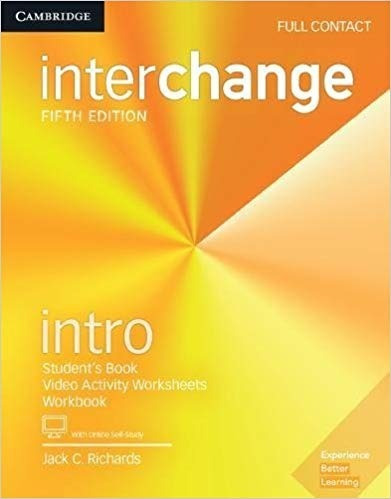
What is the interchange?
The Interchange is a weekly podcast on the global energy transformation, hosted by Stephen Lacey and Shayle Kann. Each week, the duo provide deep insights into technology, markets, projects,...
How do I subscribe to the interchange podcast?
Subscribe to The Interchange podcast via Apple Podcasts, Google Podcasts, Stitcher, Spotify or wherever you find your audio co… This week, we've got a live episode recorded at GTM's storage summit. We'll talk about the hottest energy storage stories of 2018, Oscars style.
What is the interchange at Yale University?
The Interchange is brought to you by the Yale Program in Financing and Deploying Clean Energy. Through this online program, Yale University is training working professionals in clean energy policy, finance, and technology, ac… What if we could see into the future?
Who are the sponsors of the interchange?
The Interchange is sponsored by Viking Cold Solutions, a leader in thermal storage for refrigerated warehouses, grocery store freezers, and restaurants around the globe. Find out how thermal storage can benefit your facility. We’re also sponsored by NEXTracker. NEXTracker has more than 30 gigawatts of resilient and intelligent solar tracki…

A Conversation With Alight – The Commercial Side of Solar
On the Interchange this week, David is joined by Alight CEO and founder Dr Harald Overholm. Harald was previously a cleantech venture capitalist and an advisor on solar markets to the WWF and the Swedish Government. He earned his Ph.D. from the University of Cambridge with a thesis on solar diffusion and PPA.
EVs in the US – Are We Lagging Behind?
President Biden’s Build Back Better bill includes tax incentives for consumers to switch to electric vehicles, and a multi-billion dollar plan for charging stations and infrastructure.
The Future of Solar Storage
You can develop enough renewable energy to power the world, but without energy storage systems, those developments are rendered somewhat moot. To achieve President Biden’s target of 90% renewables by 2035, the US needs an additional 9 terawatts of solar storage.
Solar Power: The Silver Linings of Ditching Silver
Why wouldn’t everyone invest in solar? Well, for that reason exactly: it’s an investment. Although it’s praised for its low maintenance costs and long-term savings, it is still a hefty investment in terms of individual finance cost, manufacturing, and installation.
Our Transition: Shayle Kann Hands Off the Show
An announcement: this is Shayle Kann's last episode of the show. The Interchange is being handed off to David Banmiller, the global head of strategic banking at Wood Mackenzie. In Shayle's final episode, he shares a few words about the history of the show and asks David about his future focus.
What the Frack Is Happening With Natural Gas?
At the beginning of the pandemic, energy prices crashed. We did an episode of this show trying to figure out how oil prices fell to negative $40 per barrel. Times have changed. Oil is up over $100/barrel. But far more acute is what’s happening with natural gas, particularly in Europe and Asia.
Would I Lie to You? (Rebroadcast)
We’re rebroadcasting one or our favorite episodes, called “Would I Lie to You?” We originally ran it right after the 2020 election as a light-hearted distraction during a dark news cycle.
How will land redistribution without compensation impact our economy?
In order to address the historic wrongs caused by arbitrary dispossession of land in South Africa, land redistribution has largely received universal acceptance as a means of reparations. But the concept of ‘compensation’ in land reform is something of a contentious issue, and the conversation is both principled and economic.
Can a merger of communism and capitalism create economic utopia?
Ideologies like communism and socialism have seen a massive decline in popularity over the years. Countries such as Venezuela are seen as the final nail in the coffin for the economic systems. On the other hand, global capitalism has taken a drastic knock, particularly after the 2008 global financial crisis left many people financially destitute.
Should legislation that affects women be drafted by women?
Legislation in its best form is designed to be progressive and all encompassing – serving the needs of all. Yet, while a legal system should be unprejudiced; law enforcement and even law-making is sometimes vulnerable to bias.
Can basic income help fight job loss caused by technology?
The rise of technology has in many ways made everyday life easier and convenient. But, for all its great uses there are also repercussions. The blue collar workforce are losing jobs because technology is replacing them.
Should the government regulate traditional practices?
In an ever-changing modern landscape, traditional practices are constantly being questioned and challenged. Many of these controversial cultural practices such as genital mutilation and forced marriages, are rooted in beliefs that have been passed down through generations - making their relevance a contentious issue.
Could android systems become our greatest allies?
While current trends of the 4IR push economic growth in the direction of new scientific and technological innovation, predictions for the 5th Industrial Revolution seem to be completely contrasting.
Can social and financial exclusion be solved with improved spatial design?
As cities continue to grow at an unprecedented rate, so do opportunities for the development of local economies. Spatial design is crucial to consider during the growth phases of a city because growth means opportunity for business, business means people, people mean housing and services.
